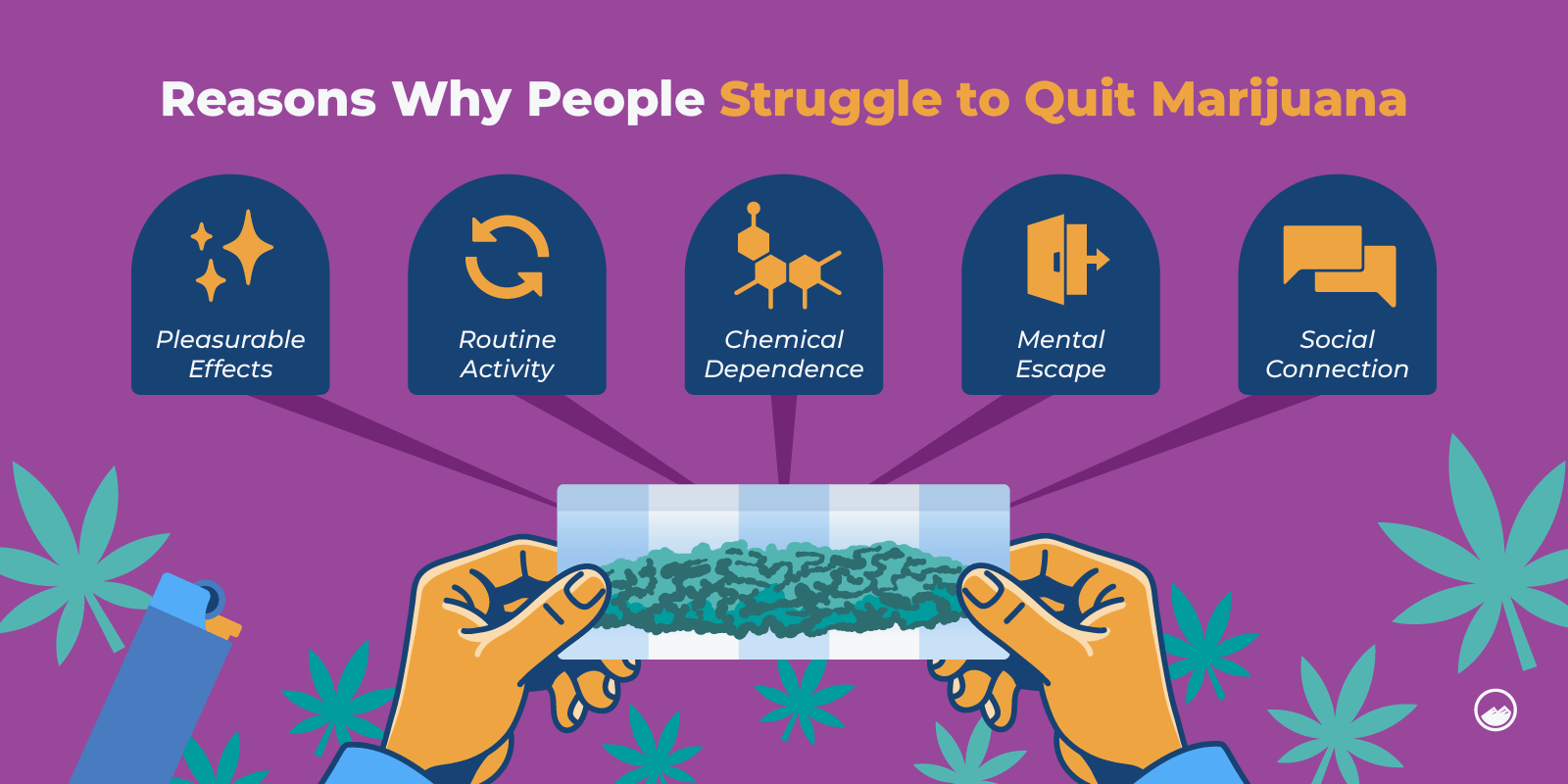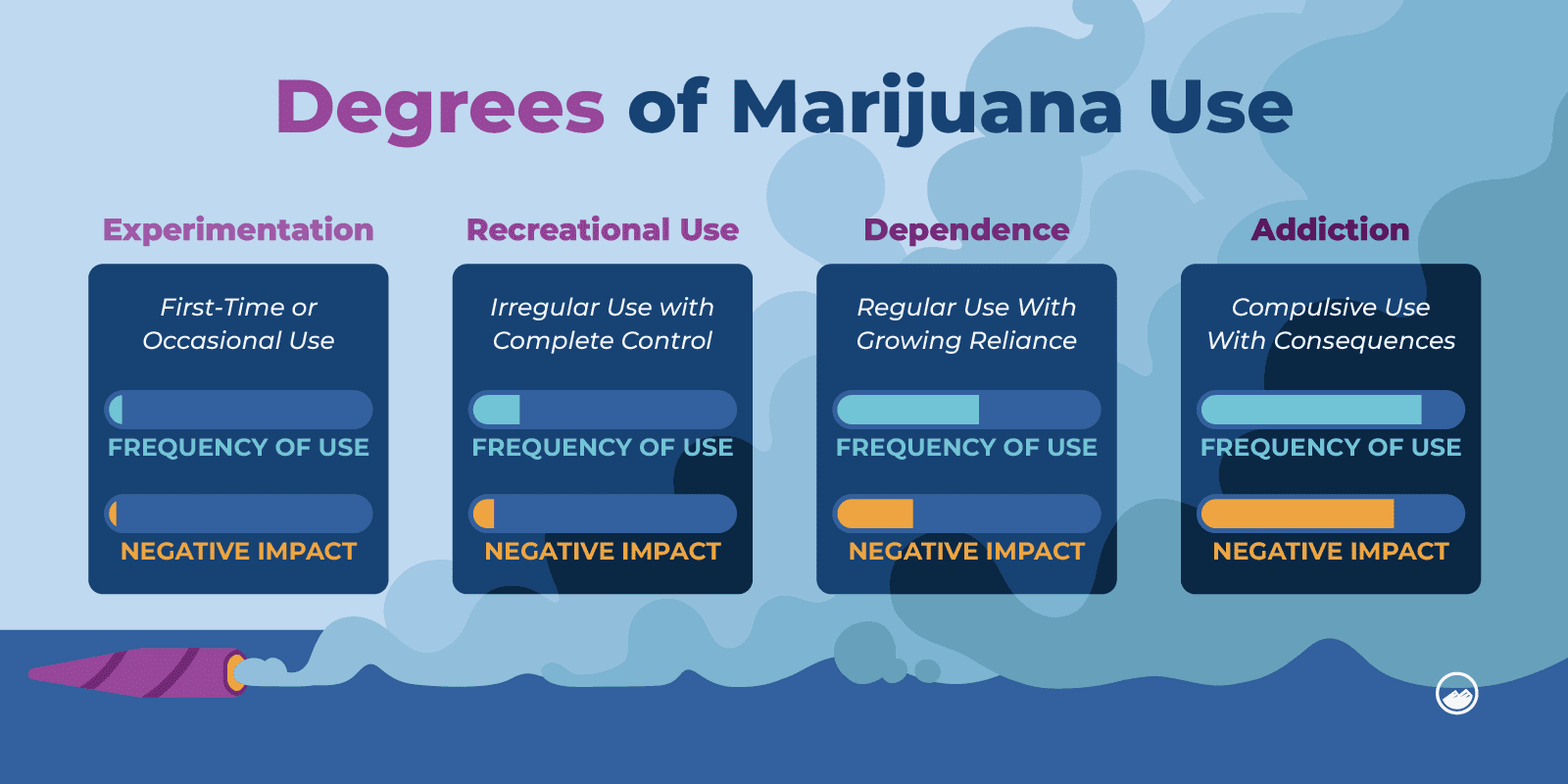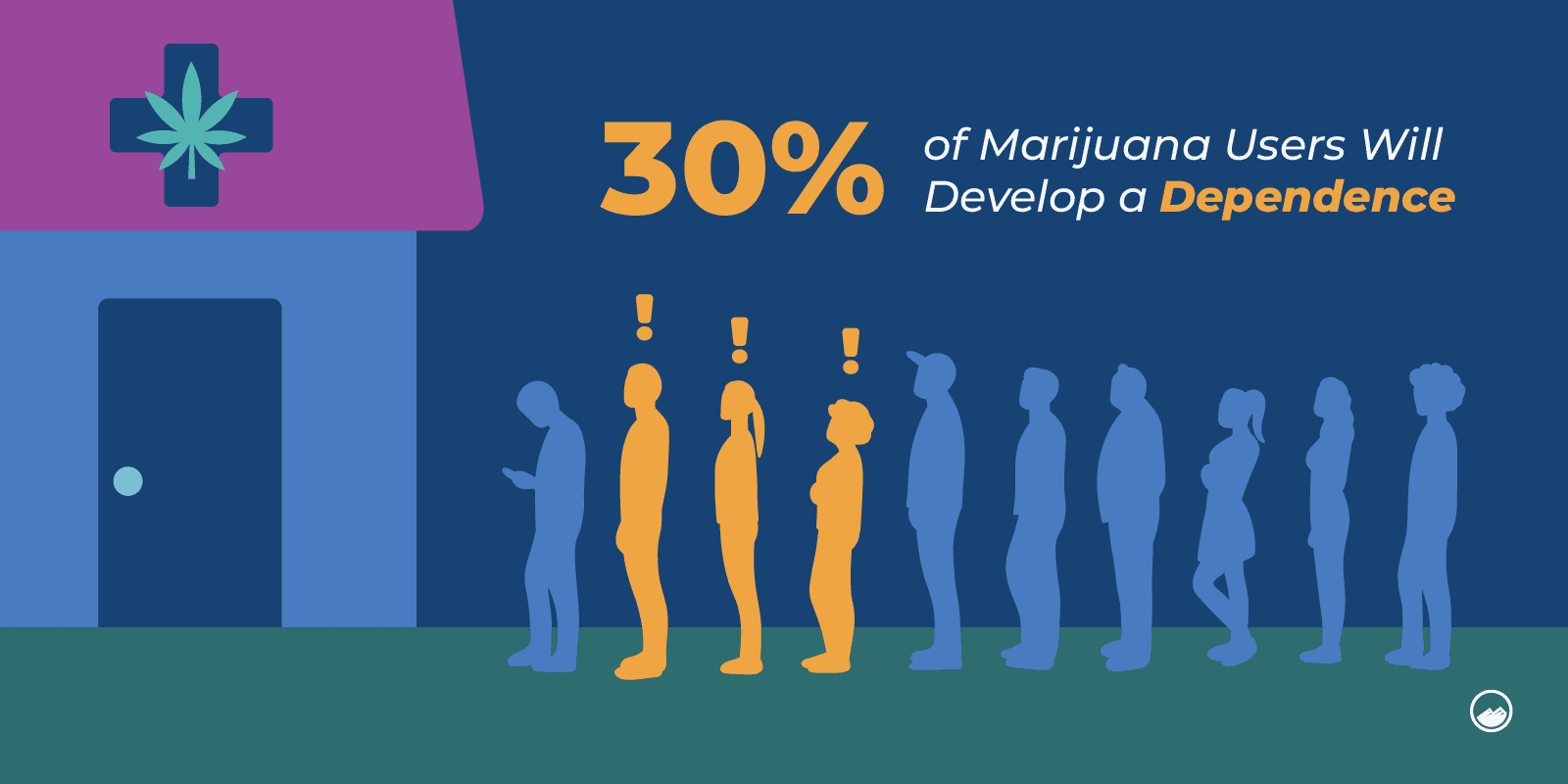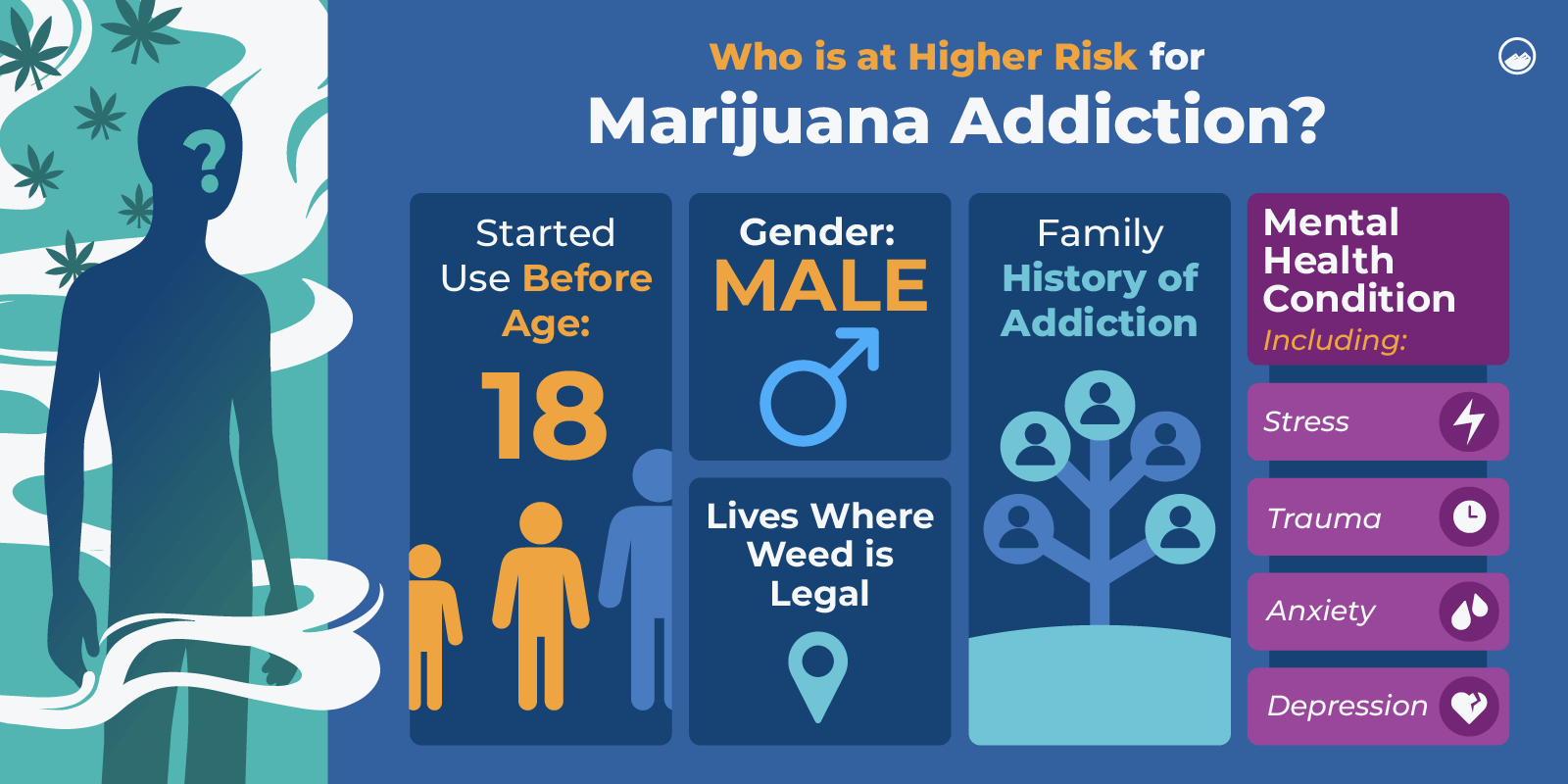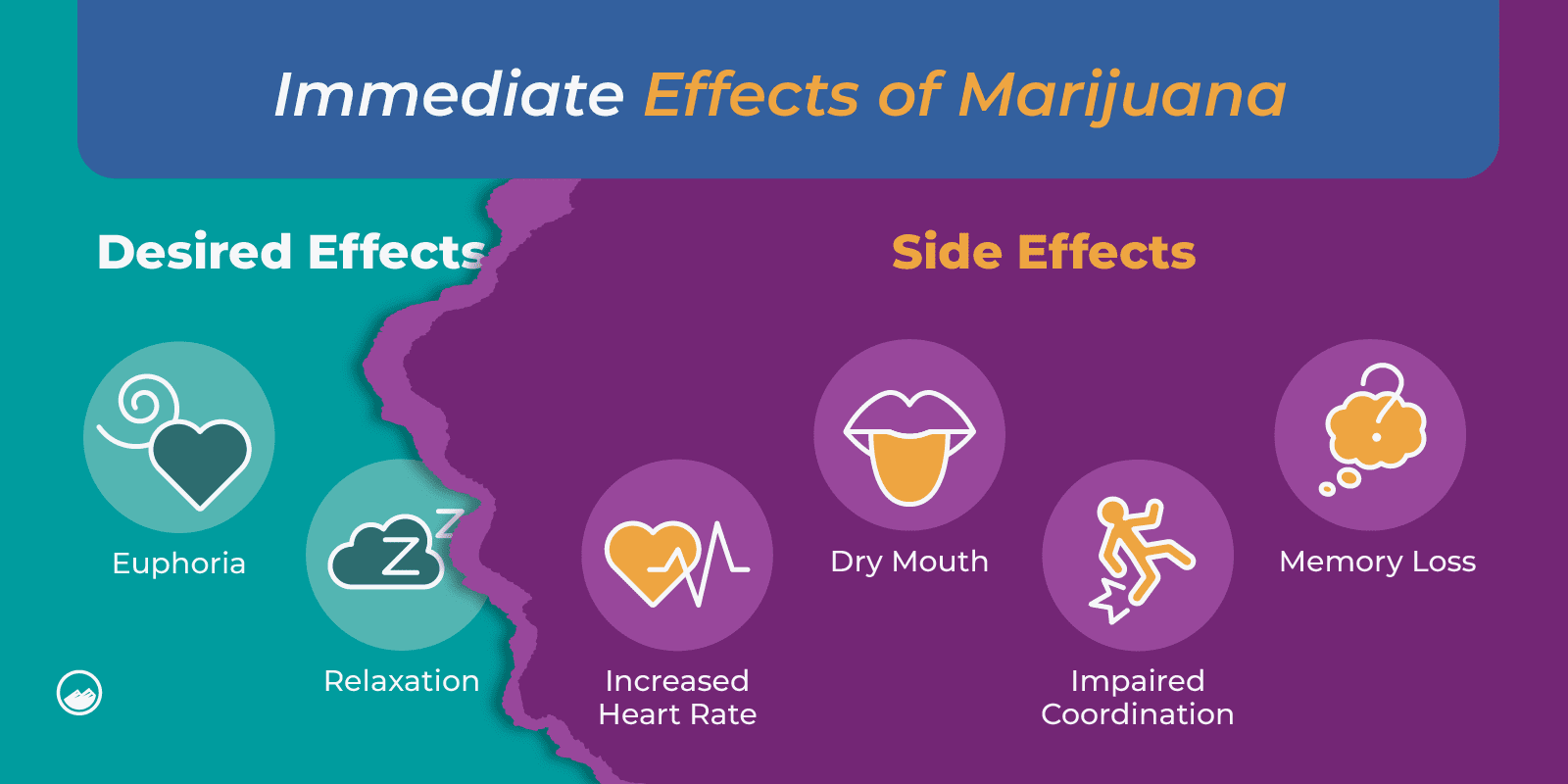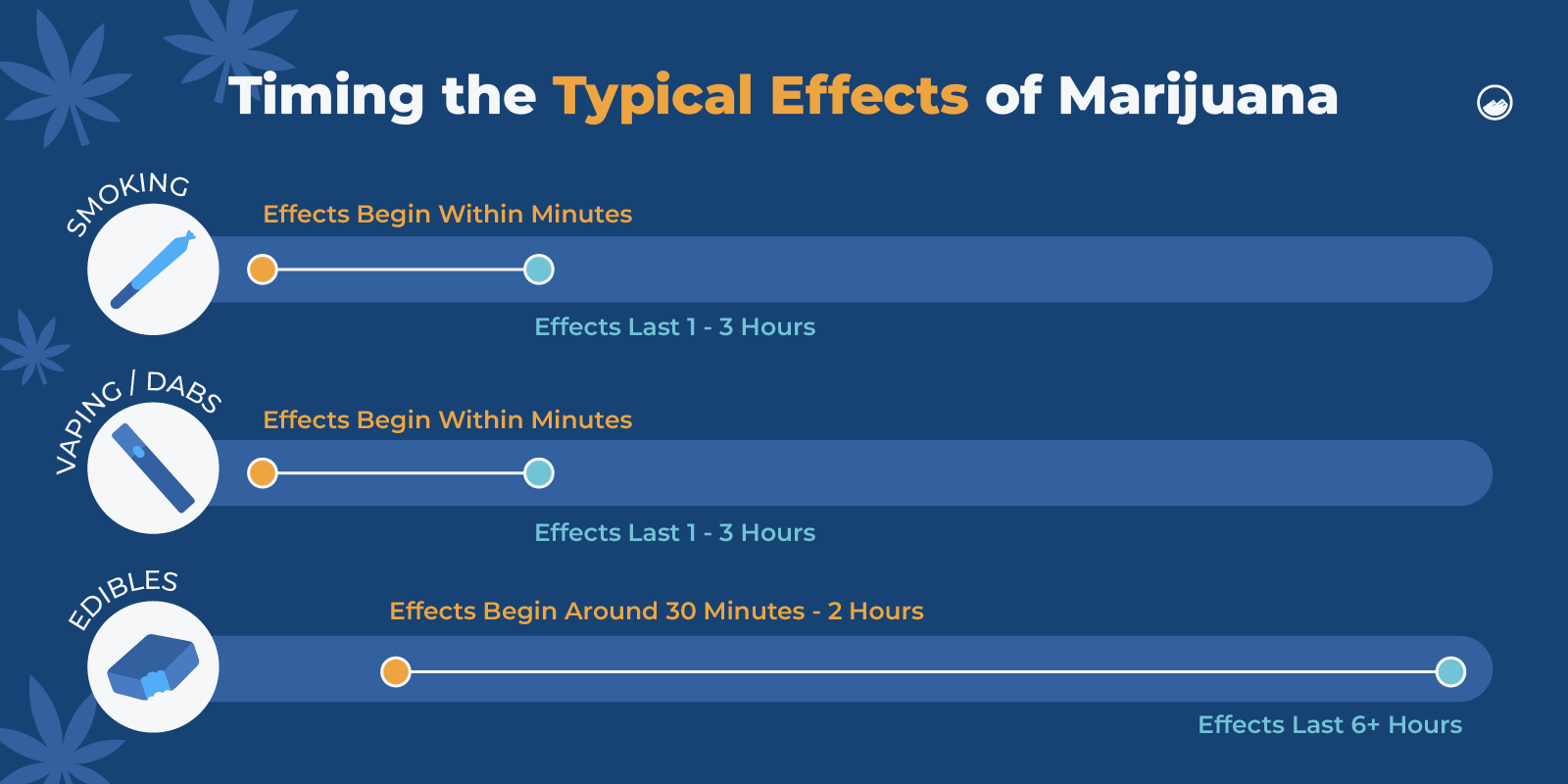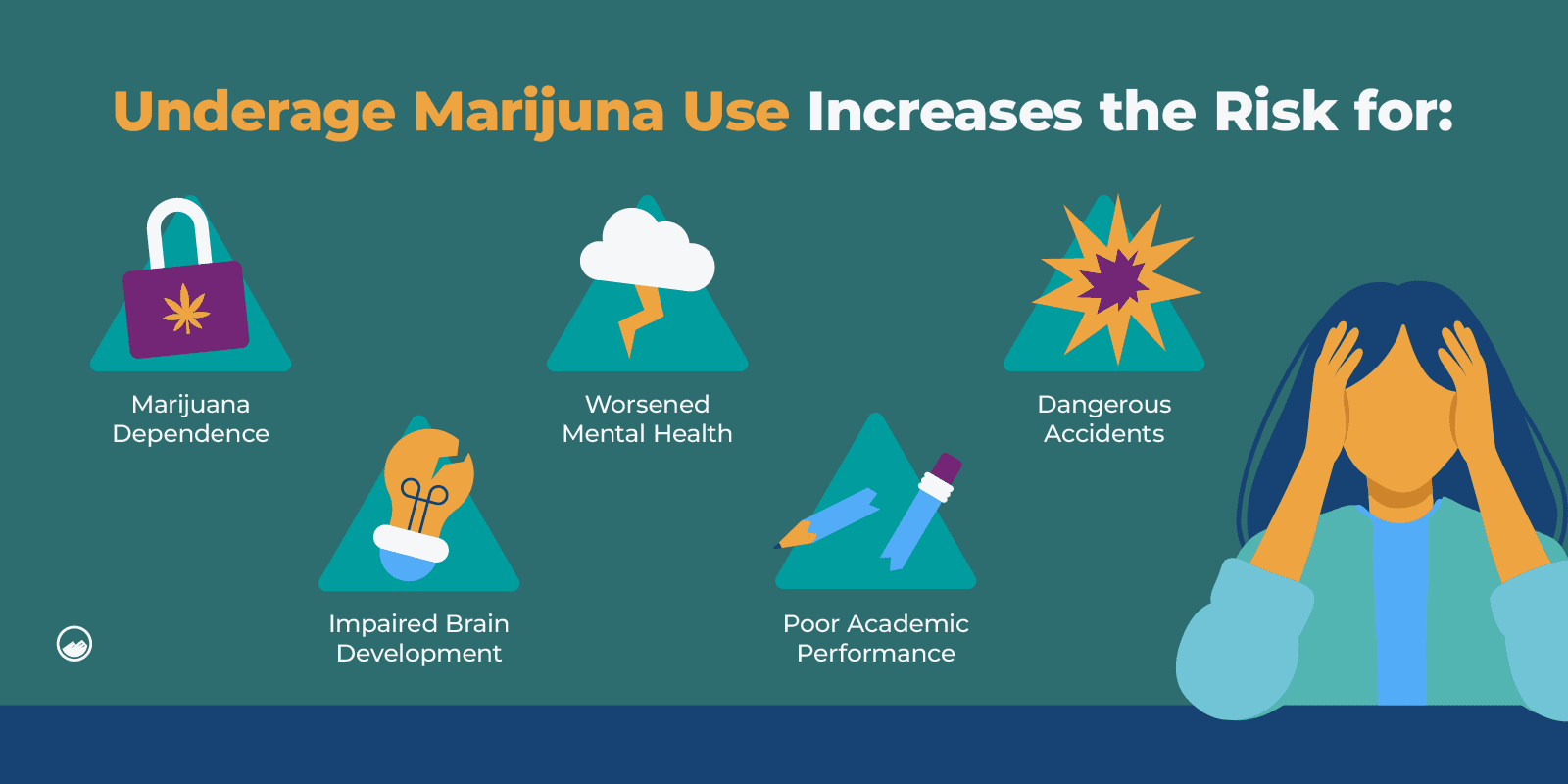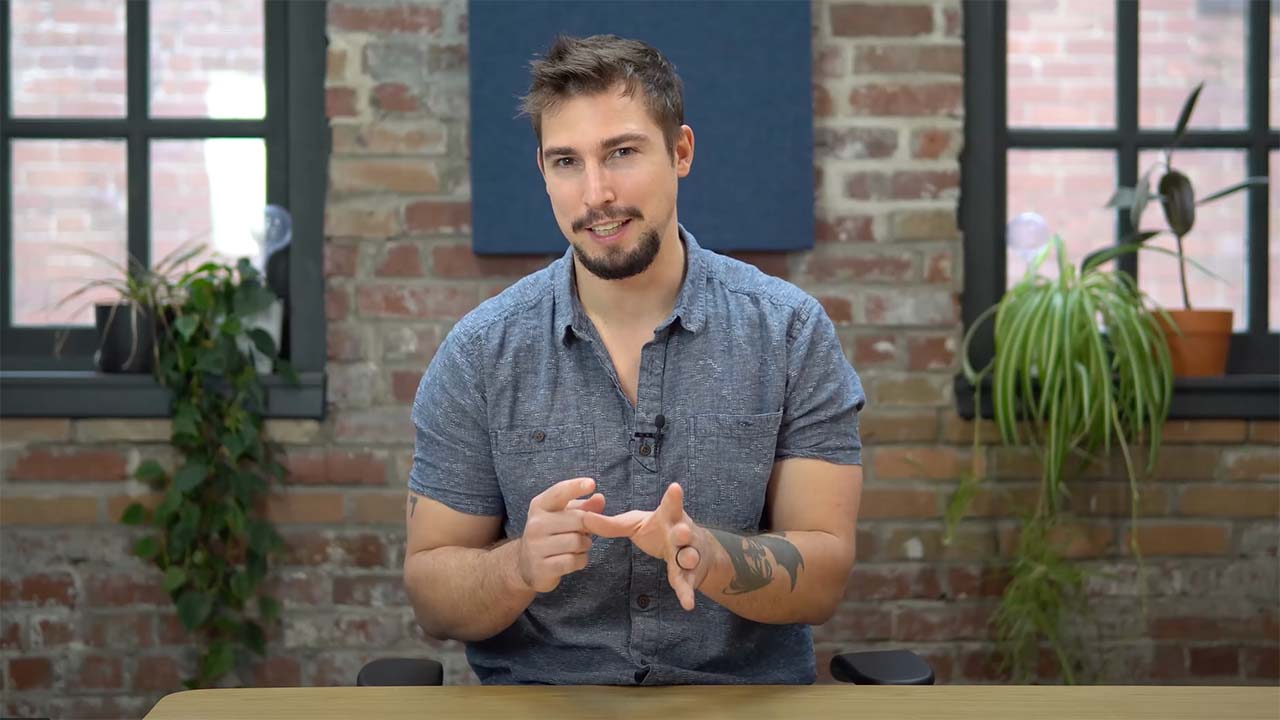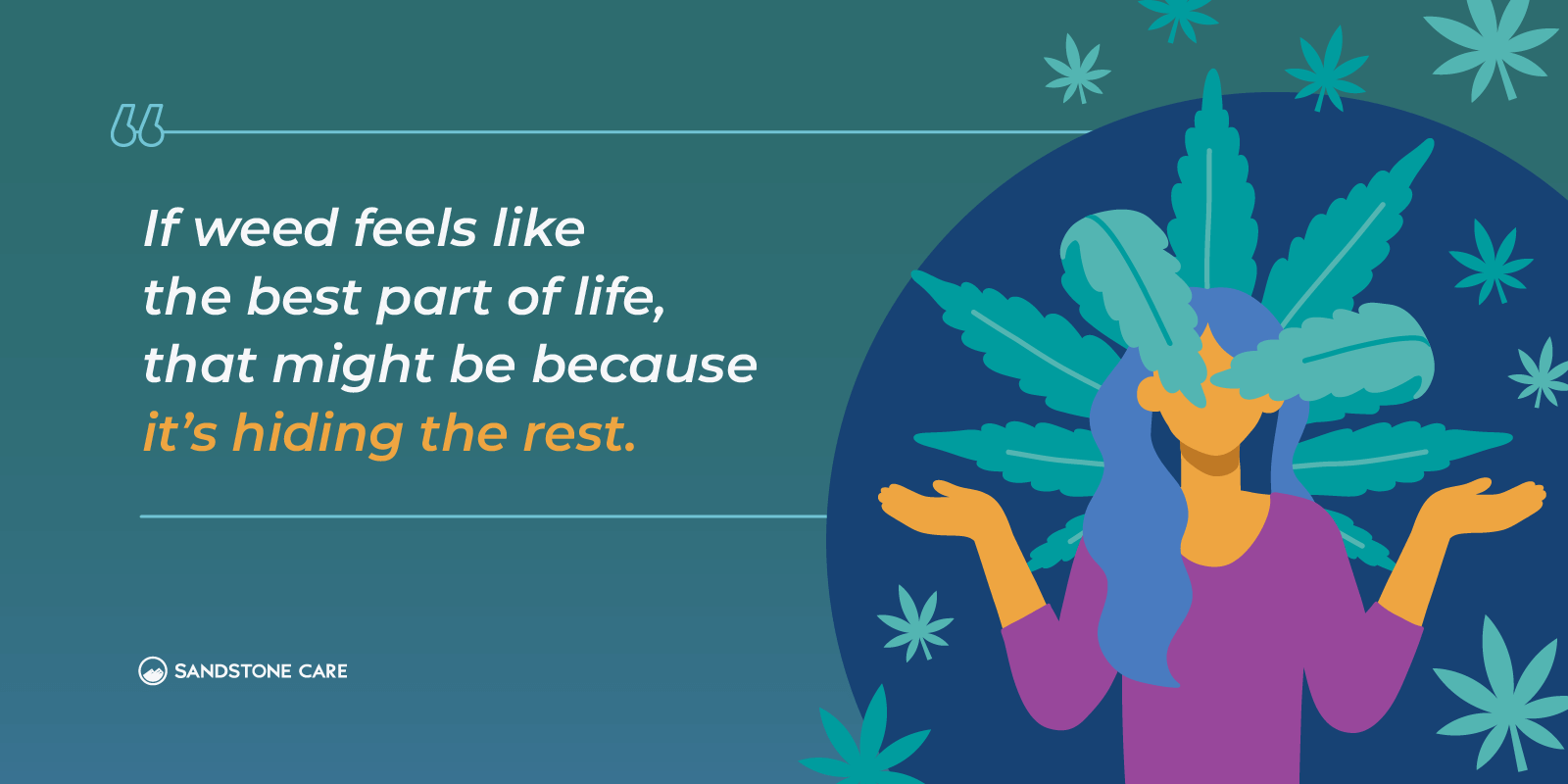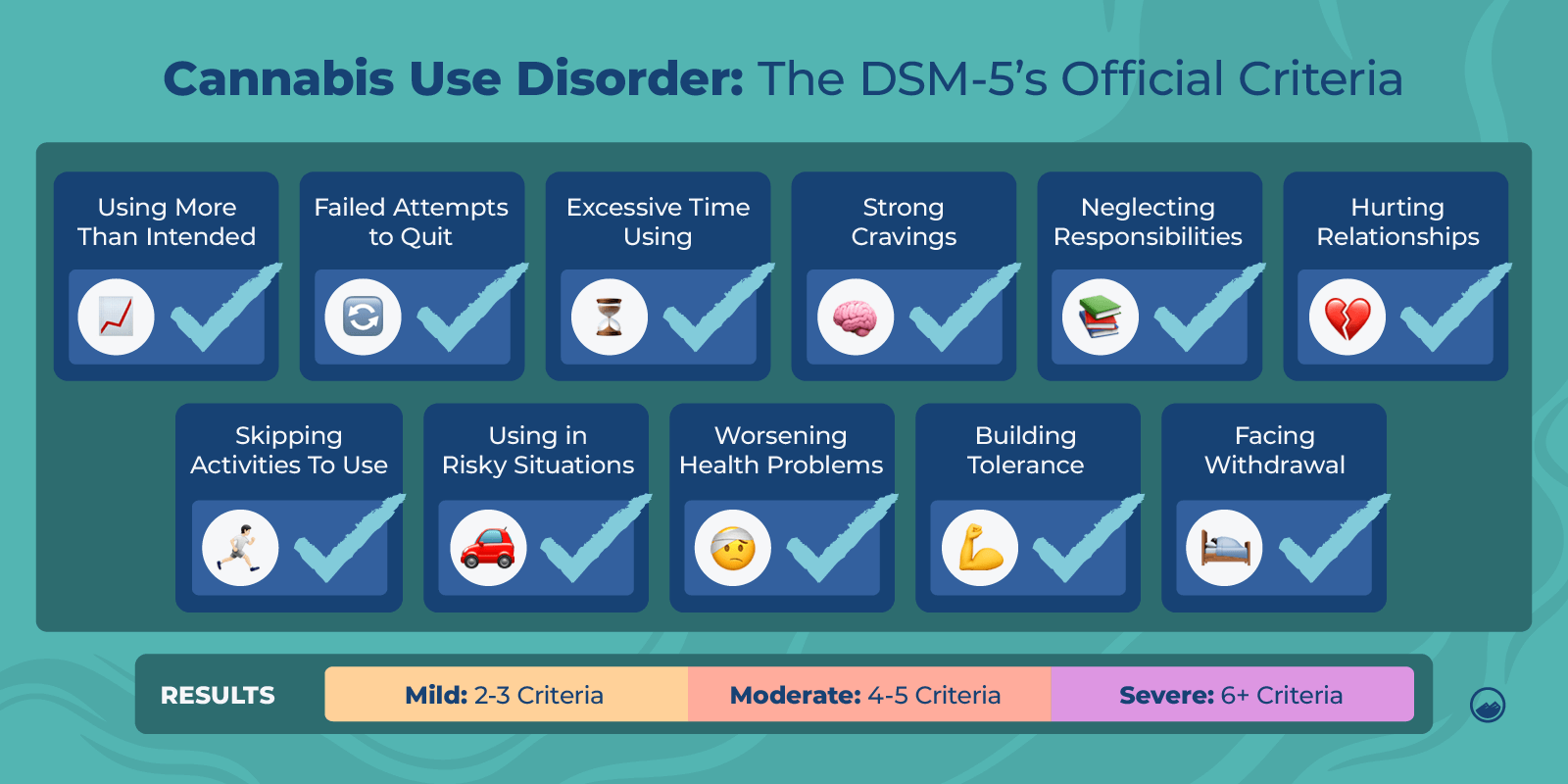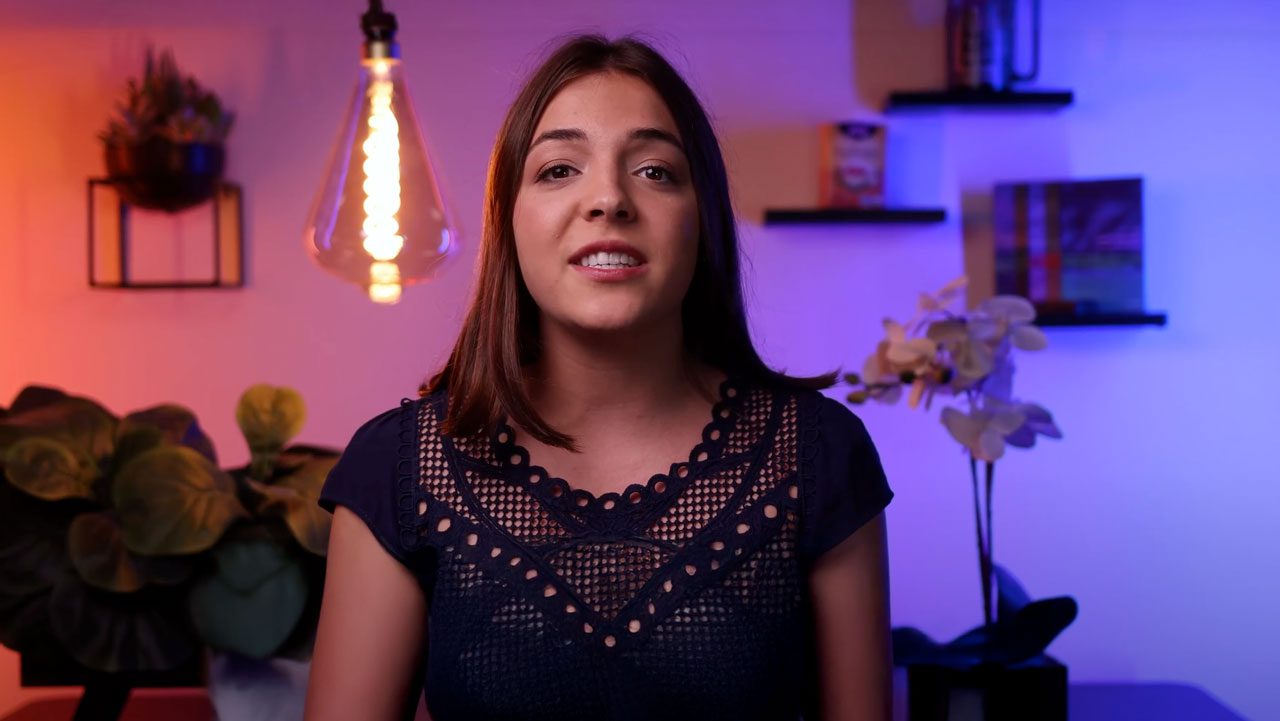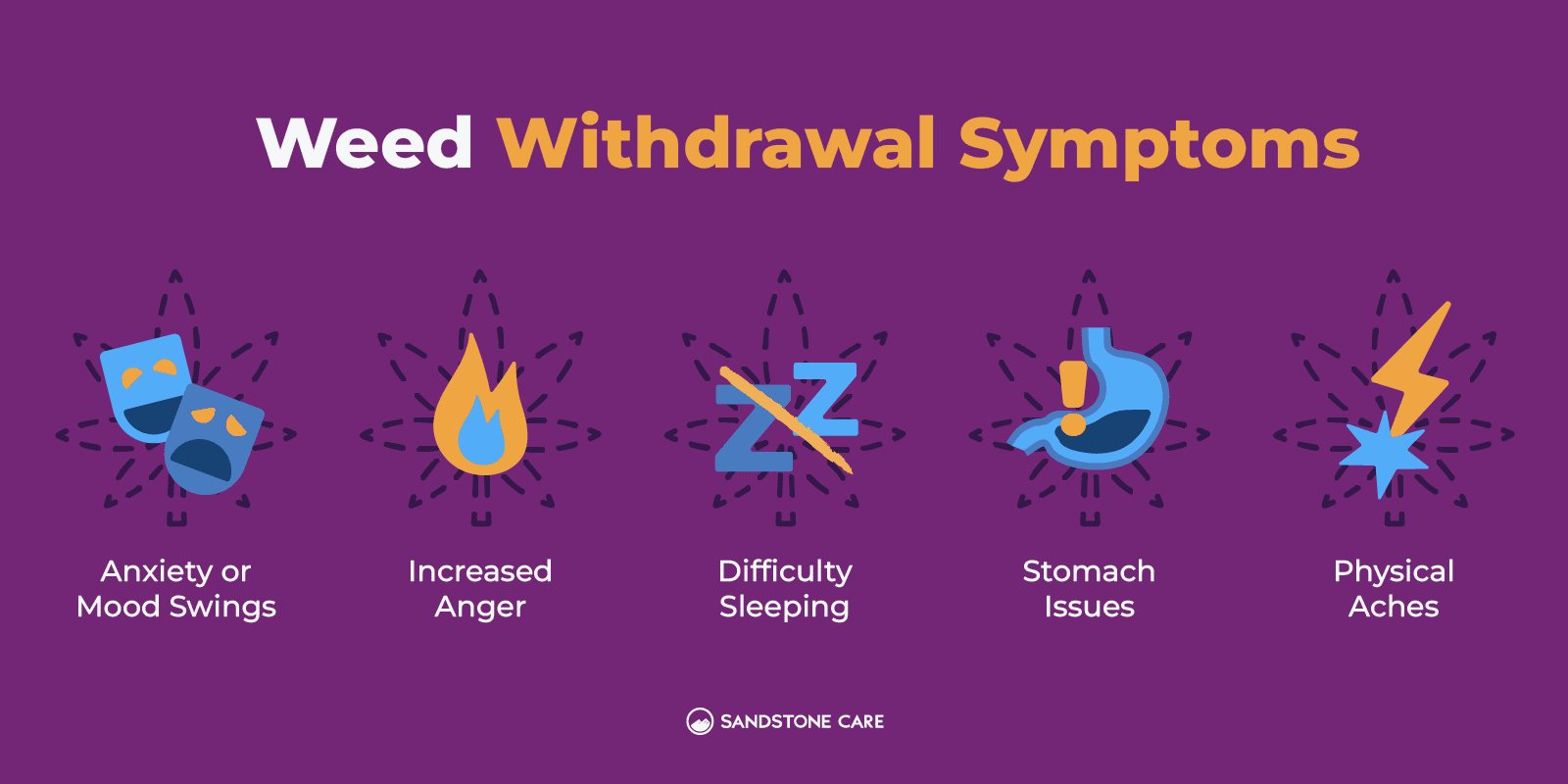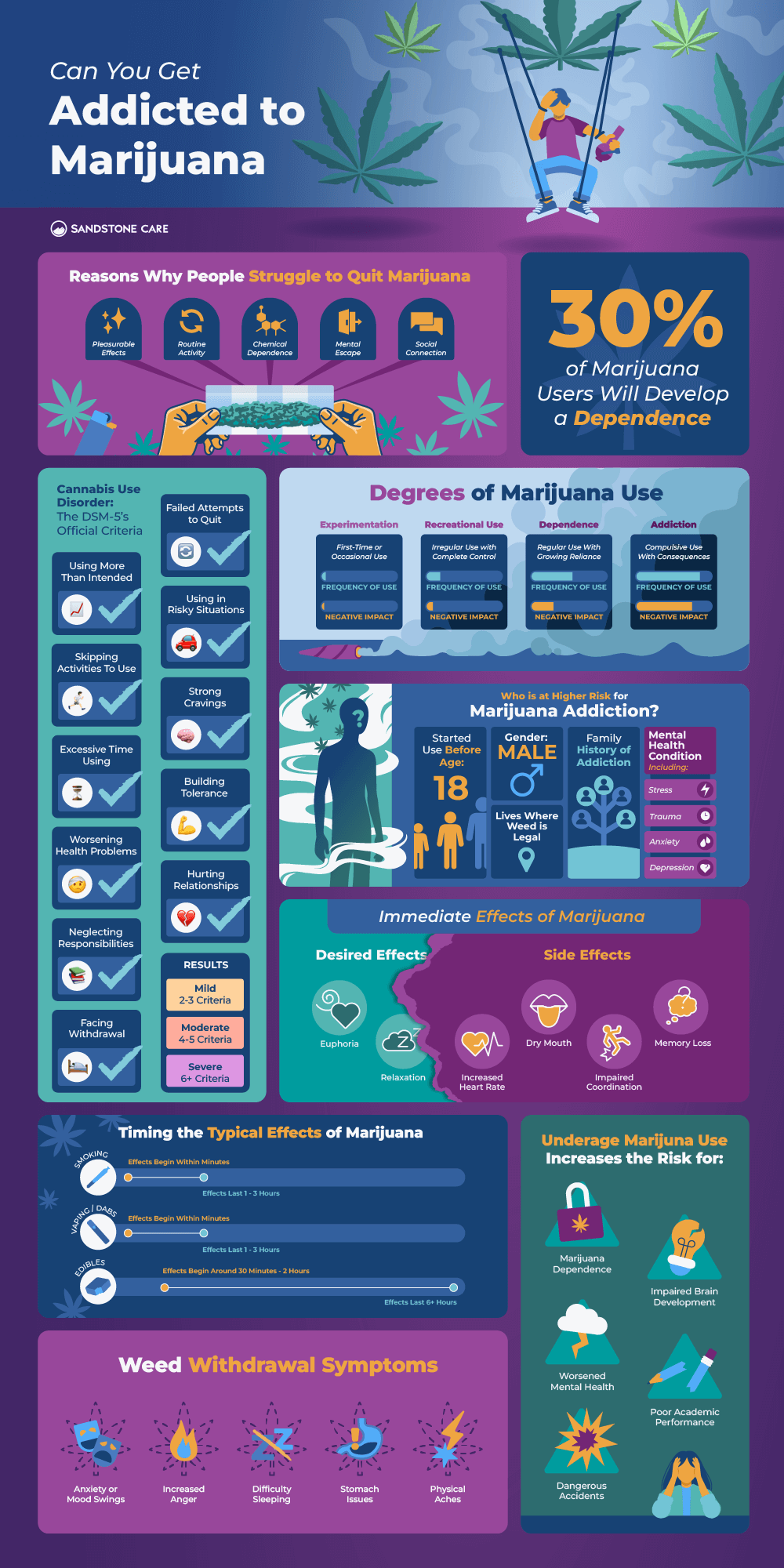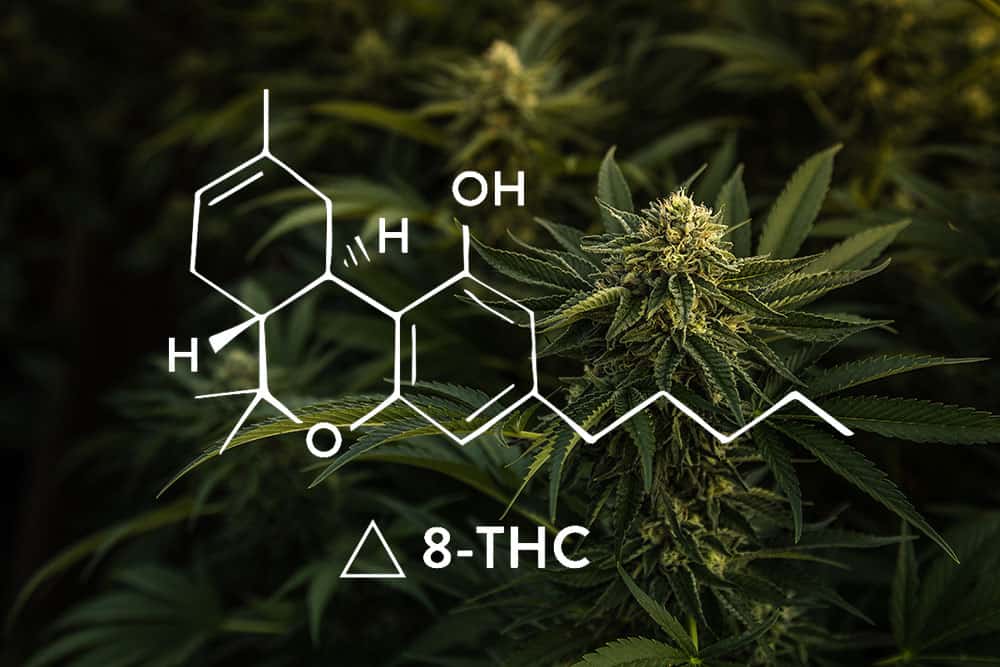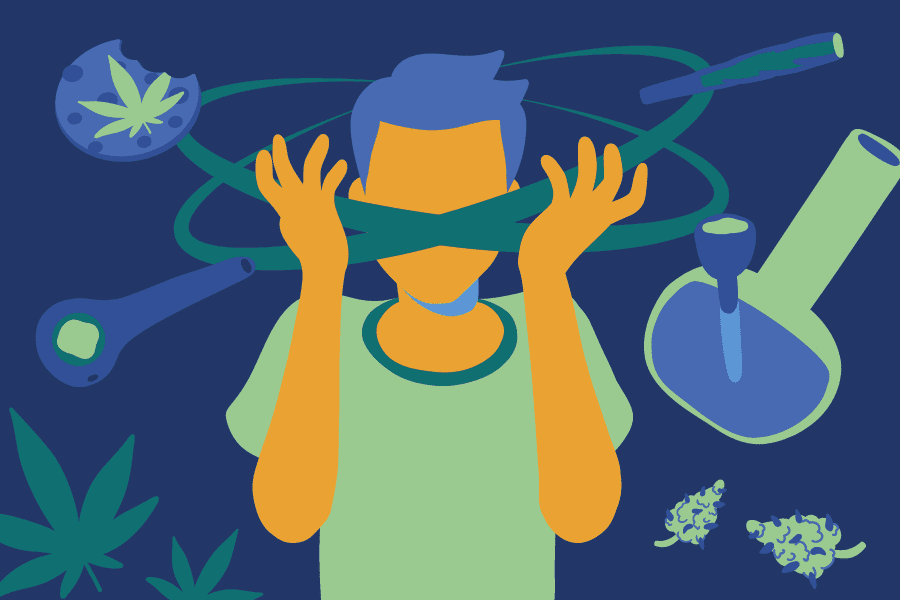Marijuana Addiction
What Is Cannabis Use Disorder (CUD)?
Cannabis use disorder develops when someone is unable to stop marijuana use, despite the negative effects it causes on their health and lives.
The term marijuana is used to refer to the dried leaves, flowers, stems, and seeds from the cannabis sativa or cannabis indica plant.
In recent decades, marijuana dependence has become a growing concern because of its growing strength and the possible effects it can have on both the body and brain.
It is especially concerning for young people and adolescents who are still in an important stage of their brain development because it can be more likely for them to develop a drug addiction.
According to the National Institute on Drug Abuse, people who begin using marijuana before the age of 18 are 4 to 7 times more likely than adults to develop a cannabis use disorder.
Cannabis dependence can affect many aspects of a person’s life. A person struggling with cannabis use disorder often faces trouble in school, at work, and in personal relationships.
Over the years, marijuana use has been begun to be viewed as a relatively harmless drug. This means it has become more accessible and even legalized in some states.
However, it is important to acknowledge the risks of negative effects of marijuana use and how those health problems can affect young people.
How Long Does It Take to Get Addicted to Weed?
The time it takes for a person to get addicted to weed depends on the individual – ranging from months to years.
However, more recently, the amount of THC in weed products has increased, putting marijuana users at higher risk of marijuana abuse.
What Is the Percentage of Cannabis Addiction?
According to the CDC, one study estimated that about 3 in 10 people who use marijuana could develop a marijuana use disorder.
Many people are unaware that cannabis use can lead to addiction, as it may not be as addictive as other illicit drugs.
Cannabis is the most commonly used federally illegal drug, and its negative effects often go unacknowledged, especially when it isn’t being used in the context of medical marijuana.
Who Is Most Affected By Cannabis Use Disorder?
Young people like teens and young adults are at a greater risk of developing cannabis use disorder.
Teens and young adults undergo major brain and neurotransmitter development throughout their mid-twenties.
This makes them more vulnerable to long-term damage from marijuana use and developing an addiction.
Marijuana has become much more accessible over the years, and many teens and young adults may try marijuana as a way of experimenting without having to turn to harder drugs.
However, many young people don’t recognize how marijuana use can affect their health and life.
What Are the Risk Factors For Cannabis Use Disorder?
Risk factors for cannabis use disorder can include:
- Traumatic or stressful life experiences
- History of mental health disorder
- Engaging in risky behaviors
- An environment where substance use is common or encouraged
Effects of Cannabis Use Disorder
What Are the Short-term Effects of Marijuana?
People may use marijuana to achieve its “euphoric” effects. Some individuals report heightened sensory perception, laughter, altered perception of time, and increased appetite.
Other effects of marijuana can include:
- Lung irritation
- Red eyes
- Increased heart rate and blood pressure
- Weakened immune system
- Mood changes
- Impaired body movement
- Difficulty thinking and problem-solving
- Hallucinations
- Delusions
- Psychosis
Psychosis refers to conditions that affect a person’s mind, where they lose contact with reality. Psychosis can affect individuals of any age.
However, it often begins when a person is in their teens or mid-twenties.
When a person experiences hallucinations, they may see, hear, or smell things that seem real but are not.
Delusions are false beliefs that are not based on truth or reality.
Other mental health effects can include depression, social anxiety, and suicidal thoughts.
If you or a loved one are experiencing suicidal thoughts, call 911 or the National Suicide Prevention Lifeline at 988.
The effects of marijuana can be felt within minutes of using it if it is being smoked. When eaten, a person may not feel its effects for hours.
Consuming marijuana can put individuals at a greater risk for poisoning.
The concentration and strength of THC in food or drinks infused with marijuana, or edibles, can be hard to measure and cause unpredictable, long-lasting effects.
What Are the Long-term Effects of Marijuana Addiction?
Long-term and frequent marijuana use has been shown to increase the risk of psychosis and schizophrenia in some users.
Recent studies suggest that smoking high-potency marijuana daily can increase an individual’s chance of developing psychosis by almost five times more than a person who does not use marijuana.
According to the National Institute on Drug Abuse, studies suggest that marijuana use can cause long-term and even permanent changes in the brain.
Additionally, when people use marijuana at a young age, it can impair important cognitive functions related to thinking, memory, and learning.
A study also suggests that marijuana use can be associated with a significant decline in knowledge and verbal ability.
A number of factors can influence the risk of a person developing psychiatric disorders that are related to marijuana use, including:
- The amount of drugs used
- The age of first use
- Genetic vulnerability
- Whether other substances are being used
Smoking marijuana has also been associated with lung inflammation, increased airway resistance, and lung hyperinflation.
A person who smokes marijuana may be at higher risk of facing problems with lung disease, lung infection, and chronic bronchitis.
Marijuana use may also increase a person’s risk of stroke, heart disease, and other vascular diseases.
What Are Some Negative Consequences of Cannabis Use Disorder?
Negative consequences of cannabis use disorder can also involve:
- Breathing problems
- Increased heart rate
- Problems with child development while pregnant and after pregnancy
- Memory issues
- Development of cannabinoid hyperemesis syndrome
Cannabinoid hyperemesis syndrome refers to a condition where a person experiences intense vomiting, nausea, and abdominal pain after using marijuana.
Some people may engage in marijuana use as a way to self-medicate, especially young people who are greatly affected by mental health disorders.
However, long-term marijuana use has actually been linked to worsened mental health issues in some individuals, especially if they start to experience cannabis withdrawal when they attempt to stop.
Marijuana use can affect many aspects of a person’s life.
Some individuals who frequently use large amounts of marijuana report poorer mental and physical health, lower life satisfaction, and more relationship problems than those who do not use marijuana.
Marijuana is also considered by some healthcare experts as a “gateway drug,” meaning that the use of marijuana, like alcohol or tobacco, is likely to come before the use of other drugs.
Diagnosis & Treatment of Cannabis Use Disorder
What Are the Signs You Might Have a Weed Addiction?
Signs of marijuana addiction can include:
- Trying to stop marijuana use but failing
- Spending a lot of time obtaining and using marijuana
- Experiencing cravings for marijuana
- Continuing marijuana use despite effects at home, school, work, or in relationships
- Engaging in risky behavior while under the influence of marijuana, such as driving under the influence
- Needing more and more marijuana to achieve a high
- Experiencing withdrawal symptoms when marijuana use stops or significantly reduces
If a weed addiction is suspected in you or a loved one, it is important to seek professional help to receive a proper diagnosis and get connected to helpful resources and treatment.
Cannabis addiction treatment can help individuals and their families heal both inside and out and become more like the person they want to be without the need for substances.
Some people may be hesitant to seek treatment for marijuana addiction as they may think that marijuana is relatively harmless or may have a difficult time acknowledging that they may be struggling with addiction.
It is important to know that you are not alone and that there is help for you. Seeking help for marijuana addiction is one of the first steps in healing.
How Do You Diagnose CUD?
To be diagnosed with cannabis use disorder, a person has to meet the diagnostic criteria set by the Diagnostic and Statistical Manual of Mental Disorders (DSM-5).
According to the National Institute of Health (NIH), an individual must meet at least two of the eleven symptoms that involve craving, withdrawal, lack of control, and negative effects on professional and personal life.
Depending on the number of symptoms a person has, the severity of a person’s cannabis use disorder will be rated as mild, moderate, or severe.
If you believe you or a loved one may have a cannabis use disorder, it is important to seek professional help so they can give you a proper diagnosis.
How Is Cannabis Use Disorder Treated?
Treatment for cannabis use disorder usually involves psychotherapy or “talk therapy.”
Treatment options such as cognitive behavioral therapy (CBT), motivational enhancement therapy (MET), and contingency management (CM) have been used as treatment approaches for cannabis use disorder.
Motivational Enhancement Therapy (MET) is an approach that is used to evoke internally motivated change.
The goal of motivational enhancement therapy is not to treat a person but rather to get them to engage in treatment.
Contingency Management (CM) is a type of behavioral therapy that rewards positive behaviors with tangible rewards.
These treatments have been shown to promote abstinence and engage individuals in treatment.
There are no current medications approved for treating cannabis use disorder.
What Is the Best Kind of Treatment For Marijuana Addiction?
Psychotherapy is the most common and effective form of treatment for marijuana addiction.
Psychotherapy focuses on how one’s thoughts, feelings, and behaviors connect. Through talk therapy, a person can better understand how negative thoughts lead to destructive behaviors.
Cognitive behavioral therapy (CBT) is a common and effective form of psychotherapy proven to be effective in treating a variety of different mental health and substance use disorders.
CBT is an umbrella term that refers to a range of different treatment approaches, such as Rational Behavior Therapy, Rational Emotive Behavior Therapy, and Cognitive Therapy.
Treatment for marijuana addiction is not one-size-fits-all. What works for one person may not work for another. It is important to find a treatment program that works best for your needs.
Support groups can also be helpful for individuals struggling with addiction and mental health disorders.
Addiction often becomes isolating, and it can be hard to believe that others may understand what you are going through.
Participating in support groups can help people relate to each other and learn from others who share similar experiences. Many find strong connections that last long after treatment is over.
Where Can I Find a Marijuana Addiction Treatment Center Near Me?
According to Pharmacotherapy, despite the high rates of cannabis use, a vast majority of those with CUD go untreated.
The Substance Abuse and Mental Health Services Administration has a behavioral health treatment locator that serves as an anonymous source of information for those seeking mental health and substance abuse treatment.
Cannabis Withdrawal
What Is the Withdrawal Process Like For Marijuana Addiction?
The withdrawal process for marijuana addiction typically starts within the first few days of stopping use, and may continue for up to two weeks.
What Are Some Withdrawal Symptoms Of Marijuana Addiction?
Marijuana withdrawal symptoms can include the following:
- Irritability
- Mood changes
- Sleep problems
- Cravings
- Decreased appetite
- Restlessness
- Physical discomfort
Marijuana use disorders are typically associated with dependence, meaning a person will experience withdrawal symptoms if they stop using a drug or significantly decrease their use.
If you or a loved one are experiencing withdrawal, seek professional help so that withdrawal symptoms may be managed safely.
What Does THC Do to the Brain?
THC acts on brain cell receptors that normally react to natural THC-like chemicals. These chemicals play a role in important brain development and function.
THC also alters normal brain communication and activates the brain’s reward system.
It can cause an increase in the brain’s chemical dopamine, which urges the brain to repeat the rewarding behavior.
Marijuana directly affects the brain responsible for important functions such as:
- Emotion
- Coordination
- Reaction time
- Learning and attention
- Memory
- Decisions
Young people, especially teens, are especially vulnerable to the negative impacts marijuana can have on the brain because they are still undergoing major development.
Recently, the THC levels in marijuana have increased. Higher THC levels may be associated with an increased risk of harmful reactions, dangerous results, and addiction.
Marijuana’s effect on the brain can cause long-term and, in some cases, permanent damage.


